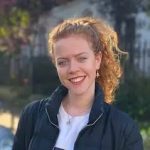- Tesla has recalled 53,822 vehicles because Full Self-Driving lets cars roll past stop signs.
- The NHTSA said the "rolling stop" feature could increase the chances of collision.
- Tesla will disable the "rolling stop" feature via a software update in February, the NHTSA said.

Tesla is recalling almost 54,000 US vehicles which have Full Self-Driving software after safety regulators found that it lets cars roll past stop signs instead of completely halting.
The National Highway Traffic Safety Administration released documents Tuesday, saying that a "rolling stop" feature allows a Tesla to drive through an all-way-stop intersection at up to 5.6 miles per hour before it comes to a halt.
This could increase the risk of a crash, the NHTSA said in the documents. Tesla hasn't reported any collisions related to the "rolling stop" feature with FSD as of January 27, according to the documents.
After two meetings in January to discuss the issue, the NHTSA said in the documents that Tesla is going to disable the "rolling stop" feature via a software update in February.
The recall covers 53,822 Tesla vehicles, including 2017-2022 Model 3, 2016-2022 Model S and Model X, and 2020-2022 Model Y, per the documents.
Tesla didn't immediately respond to Insider's request for comment.
The "rolling stop" feature can be used when there are no moving cars, pedestrians or cyclists surrounding the Tesla vehicle, when it is traveling below 5.6 mph, and the road has a speed limit of 30 mph or less, Tesla said in the NHTSA documents.
FSD is an enhancement of Tesla's standard Autopilot feature. It allows the car to automatically change lanes, enter and exit highways, recognize stop signs and traffic lights, and park. FSD doesn't make the vehicle fully autonomous, despite its name.

